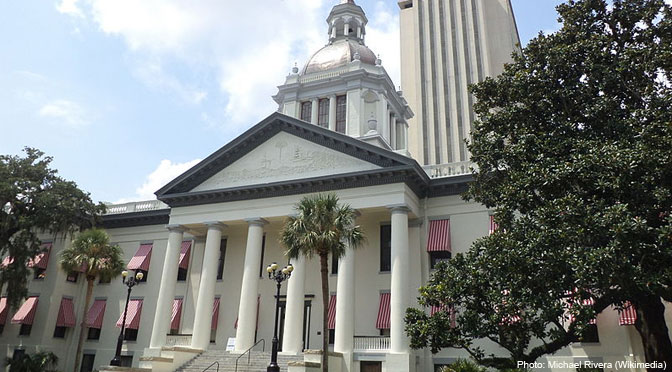Florida Representative Webster Barnaby filed House Bill 167 on Wednesday, September 22 — a bill that is in many ways similar to the Texas Heartbeat Act. The bill would restrict abortions once a preborn child’s heartbeat can be detected, by about six weeks gestation (four weeks after fertilization).
Like the Texas law, abortion providers found to be in violation could face a fine of $10,000, and any individual (other than state government employees) could bring a lawsuit against such a provider or any individual who “aids or abets” the procurement of an abortion deemed illegal under the law. A lawsuit could be filed up to six years later, and abortion providers could be sued one time per illegal procedure. In addition, as in Texas, no woman could be prosecuted for seeking an abortion.
The Florida bill cited the state’s role in legislating abortion for the purpose of protecting the lives of both mothers and their preborn children, noting that the state “as a compelling interest from the outset of a woman’s pregnancy in protecting the health of the woman and the life of the unborn child.” The bill mandates a 24-hour waiting period between a woman’s first in-person appointment and the abortion, along with education about “entities that offer alternatives to terminating the pregnancy.” It also requires that before the abortion, the woman must be offered an opportunity to view an ultrasound image of her preborn child.
However, in the cases of rape, incest, domestic violence, human trafficking, or for “health of the mother,” the woman seeking an abortion is not to be offered the chance to view the ultrasound unless she herself requests to see it. The 24-hour mandatory waiting period may also be waived in such cases.
READ: ’98 beats per minute’: Science sheds light on the heartbeat of the preborn child
The Texas Heartbeat Act as well as the Florida version have no rape or incest exceptions (see more on why this is the case here), though both bills would allow for abortions past six weeks in case of “medical emergency” (see more here on why abortion is never actually necessary for the health or life of the mother). A CBS News article about the Florida bill claimed that “[u]nlike the law in Texas, Barnaby’s bill permits exemptions for abortions in the instance of rape, incest, domestic violence, human trafficking, or a health condition that threatens the mother” — but this claim does not appear to be substantiated by the actual text of the proposed law, and perhaps was mistakenly assumed based on the reasons listed above for exceptions to the requirement that women be offered the chance to view the ultrasound.
Pro-abortion Florida legislators and abortion advocates nationwide were incensed by the proposed legislation, with Agriculture Commissioner Nikki Fried, who is expected to challenge Governor Ron DeSantis in next year’s elections, calling the bill “dangerous, radical, and unconstitutional.” But Governor Ron DeSantis would likely sign the bill if passed by both chambers. His office wrote in an emailed statement, “Governor DeSantis is pro-life. The Governor’s office is aware that the bill was filed today and like all legislation, we will be monitoring it as it moves through the legislative process in the coming months.”
According to an inaccurate Associated Press article claiming that a heartbeat isn’t really a heartbeat, Arkansas, Indiana, Mississippi, North Dakota and South Dakota are considering introducing their own versions of the Heartbeat Act. Though no heartbeat bill prior to Texas’ had survived legal challenges, pro-life legislators have experienced renewed optimism about this type of legislation following Texas’ success.
“Like” Live Action News on Facebook for more pro-life news and commentary!







